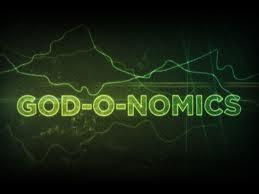In this installment of The Browser’s “Five Books” series, Anthony Gottlieb recommends several good books on God in particular and religion in general. If you don’t have the time or energy to read these books, Gottlieb’s sage glosses on them should suffice. The part I found most interesting was his discussion of the secularization thesis and comparison of Scandinavia (not religious) to America (religious). According to Gottlieb and others, Scandinavians don’t have any need for religion (and aren’t even interested in it as a theoretical issue) because they enjoy such a robust social safety-net enabled by government and prosperity. Americans, by contrast, have great need of religion because its wealth is so unevenly distributed and weirdly deployed that it doesn’t bring existential security:
America is a very modern, economically developed country, yet its level of religiosity is much more like an undeveloped country. All the other rich countries in the world—not just the European ones, but all of them—are significantly less religious than America. The extreme contrast is with Scandinavia, the others tend to be somewhere between the two, but the difficulty for the secularisation thesis has always been America.
What [these authors] propose is that religion declines not simply because of economic development, but when that economic development brings with it the security that you would expect it to bring, which they call “existential security.” Now what they argue is that America is much more like a poor country than a rich one in that many of its citizens do not enjoy this security. Take life expectancy, which is the most basic measure of social welfare. Now, if you were to rank the countries of the world by life expectancy, with the longest lived at the top, where roughly would you expect America to be?
[I]t is not in the top ten. It’s not in the top 20 or 30 or 40. It’s number 43. And the biggest single reason for that is that tens of millions of Americans cannot afford health care, though there are other factors too.
Now amongst the other relevant differences between America and the rest of the developed world is the fact that you’re much more likely to die through violence in America or to die in a natural disaster. And if you lose your job—and there’s a higher turn-over or “churn” in jobs than in many other places—then much worse things are going to happen to you, because there’s much less of a supporting welfare state than exists in Western Europe and elsewhere.
So to cut a long story short, life here in America is, for an awful lot of people, very much more worrying than it is for people in other rich countries— intractable fate seems to play a bigger role—and that affects the culture and climate of opinion.
In America, you need God [and the social safety net provided by churches], because nobody else is going to help you.
[I]f you take this research into account, the relative lack of existential security here, you begin to understand how the secularisation thesis in general is correct: that countries do tend to become less religious as they become more economically successful and developed. And America is an exception because a lot of what usually comes with economic development hasn’t come in America.
This is a provocative thesis backed up by several different lines of data and analysis. While Gottlieb notes that this is not the sole explanation for American religiosity (history plays a role, along with expansionist “exceptionalism”), it’s surely an important factor.
The fear levels in this country are substantial and aren’t limited to economic insecurities. I never cease to be amazed by the mostly imaginary things that are used to stoke fear and ratchet up anxiety levels. If it isn’t crisis in the home, it’s crisis in the community. If it’s not crisis in the community, it’s crisis in the country. If it’s not crisis in the country, it’s crisis coming from abroad. All these layers are permeated with and paralleled by supernatural crises ranging from moral decay to the coming apocalypse.
This imaginary hell on earth makes America the nation of overactive amygdalas. It’s a perfect environment not only for religion but also for politics. I find the theologies of both equally distasteful.
Though I can’t share Gottlieb’s naive belief that economic development will deliver security to ever increasing numbers of people who consequently will become secular, I can recommend that you read his piece. He’s a keen observer and good teacher.


